Welcome to Watson’s Monthly! The Monthly is a document that gives you roundup of the major stories and developments that happened over the course of January.
This will give you a different view of how things developed over the month and will really help your understanding and recall of the events as they happened.
IN BIG PICTURE NEWS…
The IMF cut economic growth forecasts in its latest World Economic Outlook report. It blamed the impact of supply chain issues and pandemic restrictions for the cuts but said that it thought fuel prices would “moderate during 2022-3” while supply chain issues and the effects of Covid would lessen as time goes on. Not particularly insightful, but there you go…
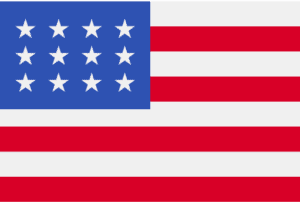 In the US – the US Labor Department announced that inflation had increased by a whopping annual rate of 7% in December, which was the biggest 12-month increase since June 1982. Fed chief Jay Powell sounds like he’s softening everyone up for an interest rate increase because, in order to power labour markets higher for longer, “we are going to need price stability”. In the US, the Fed made clear signs that it would be raising interest rates very soon, a move that got all the more pressing with the release of its latest GDP growth figure, which beat expectations.
In the US – the US Labor Department announced that inflation had increased by a whopping annual rate of 7% in December, which was the biggest 12-month increase since June 1982. Fed chief Jay Powell sounds like he’s softening everyone up for an interest rate increase because, in order to power labour markets higher for longer, “we are going to need price stability”. In the US, the Fed made clear signs that it would be raising interest rates very soon, a move that got all the more pressing with the release of its latest GDP growth figure, which beat expectations.
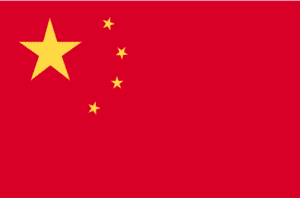 In China – China is having a tough time as its GDP growth rate slowed to 4% year-on-year, its slowest pace for 18 months. It has been exercising extreme caution ahead of next month’s Winter Olympics and shut roads and suspended plane, train and bus services, which has been terrible for the economy. Other than that, China is in the midst of a clampdown on tech, real estate and gambling. As such, Ant Group got caught up in allegations of corruption, TikTok owner ByteDance disbanded its investment team, Evergrande continued to die a slow death but Chinese casino stocks like Sands China, MGM China and Wynn Macao actually got a boost because authorities weren’t as hard on them as the market had been expecting.
In China – China is having a tough time as its GDP growth rate slowed to 4% year-on-year, its slowest pace for 18 months. It has been exercising extreme caution ahead of next month’s Winter Olympics and shut roads and suspended plane, train and bus services, which has been terrible for the economy. Other than that, China is in the midst of a clampdown on tech, real estate and gambling. As such, Ant Group got caught up in allegations of corruption, TikTok owner ByteDance disbanded its investment team, Evergrande continued to die a slow death but Chinese casino stocks like Sands China, MGM China and Wynn Macao actually got a boost because authorities weren’t as hard on them as the market had been expecting.
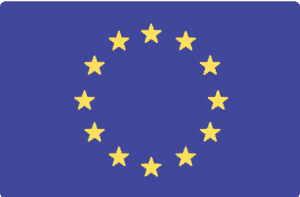 In Europe – the European Central Bank continued to do nothing despite the incoming new Bundesbank chief Joachim Nagel pushing for it to do something about rampant inflation levels in Europe. Meanwhile, in Italy, investors had a bit of a wobble as they worried about Mario Draghi becoming President in next week’s elections because they thought he would leave a vacuum behind that would create a real void and potentially plunge the country back into the very turmoil he was brought in to tame!
In Europe – the European Central Bank continued to do nothing despite the incoming new Bundesbank chief Joachim Nagel pushing for it to do something about rampant inflation levels in Europe. Meanwhile, in Italy, investors had a bit of a wobble as they worried about Mario Draghi becoming President in next week’s elections because they thought he would leave a vacuum behind that would create a real void and potentially plunge the country back into the very turmoil he was brought in to tame!
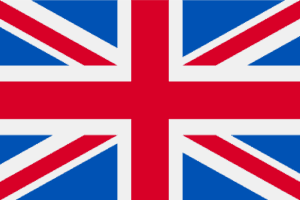 In the UK – inflation hit a near-30 year high of 5.4%. Also, the whole Boris Johnson/partygate scandal continued to escalate with the “imminent” release of the Sue Gray report, which didn’t actually get released as expected. No-one seems to be emerging as a leading candidate for the PM’s position at the moment, but you would have thought that Liz Truss’s star got tarnished by revelations about the use of the government’s private jet to fly to Australia which would have cost the taxpayer about £500,000.
In the UK – inflation hit a near-30 year high of 5.4%. Also, the whole Boris Johnson/partygate scandal continued to escalate with the “imminent” release of the Sue Gray report, which didn’t actually get released as expected. No-one seems to be emerging as a leading candidate for the PM’s position at the moment, but you would have thought that Liz Truss’s star got tarnished by revelations about the use of the government’s private jet to fly to Australia which would have cost the taxpayer about £500,000.
 In RUSSIA – The Russia/Ukraine situation continued to develop as Russian troop numbers continued to grow on the Ukraine border. Negotiations with NATO and the US kicked off this month but didn’t really get anywhere and President Biden made an almost Trump-esque gaffe regarding the Russia/Ukraine situation when he said that a “minor incursion” by Russian forces into Ukraine would not provoke a full response from the Allies. Putin is sitting pretty at the moment as he’s managed to split the newly-minted German coalition government and NATO whilst giving away no concessions! Russian state media continued to up the ante with the broadcast of accusations against Ukraine, so the ECB asked the 115 banks it overseas in the Eurozone about contingency plans for an invasion and China threw its weight behind its Russian comrade.
In RUSSIA – The Russia/Ukraine situation continued to develop as Russian troop numbers continued to grow on the Ukraine border. Negotiations with NATO and the US kicked off this month but didn’t really get anywhere and President Biden made an almost Trump-esque gaffe regarding the Russia/Ukraine situation when he said that a “minor incursion” by Russian forces into Ukraine would not provoke a full response from the Allies. Putin is sitting pretty at the moment as he’s managed to split the newly-minted German coalition government and NATO whilst giving away no concessions! Russian state media continued to up the ante with the broadcast of accusations against Ukraine, so the ECB asked the 115 banks it overseas in the Eurozone about contingency plans for an invasion and China threw its weight behind its Russian comrade.
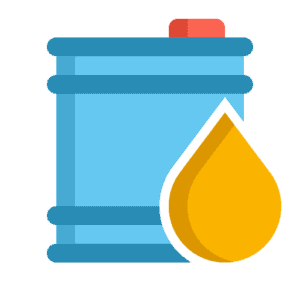 In energy and oil news – One major consequence of all this is the effect on gas and oil prices. Gas prices continued to climb as tensions rose as the week progressed with Russia/Ukraine/NATO/EU/US. Europe gets around 40% of its gas from Russia, most of which goes via Ukraine and so prices are rising because it is feared that supplies could be interrupted by potential conflict. Analysts at Goldman Sachs think that gas prices will stay higher for three more years on the assumption that energy shortages in Europe will continue. Serica Energy continues to benefit from high gas prices, although it might have to be careful not to do too well as the government might ask it to pay a windfall tax! Oil prices hit $90 a barrel and many think they’ll hit $100 before long. Again, some of this is being driven by fears that a Russia/Ukraine conflict could hit supplies.
In energy and oil news – One major consequence of all this is the effect on gas and oil prices. Gas prices continued to climb as tensions rose as the week progressed with Russia/Ukraine/NATO/EU/US. Europe gets around 40% of its gas from Russia, most of which goes via Ukraine and so prices are rising because it is feared that supplies could be interrupted by potential conflict. Analysts at Goldman Sachs think that gas prices will stay higher for three more years on the assumption that energy shortages in Europe will continue. Serica Energy continues to benefit from high gas prices, although it might have to be careful not to do too well as the government might ask it to pay a windfall tax! Oil prices hit $90 a barrel and many think they’ll hit $100 before long. Again, some of this is being driven by fears that a Russia/Ukraine conflict could hit supplies.
 In CRYPTOCURRENCY NEWS – regulators in Spain and the UK cracking down on dodgy crypto ads while the FCA is also considering additional moves to limit crypto investment incentives. Russia is actually considering an outright ban on all crypto operations given that crypto-mining’s thirst for electricity will severely hamper the country’s bid to cut carbon emissions. Bitcoin continued to weaken. Some said it was due to the “de-risking of portfolios” but I think it’s more to do with the threat of Russia potentially banning it (although it sounded like that assumption may have softened a bit towards the end of the week).
In CRYPTOCURRENCY NEWS – regulators in Spain and the UK cracking down on dodgy crypto ads while the FCA is also considering additional moves to limit crypto investment incentives. Russia is actually considering an outright ban on all crypto operations given that crypto-mining’s thirst for electricity will severely hamper the country’s bid to cut carbon emissions. Bitcoin continued to weaken. Some said it was due to the “de-risking of portfolios” but I think it’s more to do with the threat of Russia potentially banning it (although it sounded like that assumption may have softened a bit towards the end of the week).
In BUSINESS TRENDS NEWS…

Raw materials price rises have been causing small and medium-sized builders to go out of business because they just can’t make any money. Road freight rates shot up by almost a third last year, which all add up to higher prices that are then being passed on to customers. Plan B restrictions would be lifted, which was welcomed by businesses. A report by EY said that almost 90% of major financial services firms plan to expand or set up UK operations, contrary to many predictions made pre-Brexit.
![]() There’s bad news for US manufacturers as American chip inventory is running very low at the moment, which means that there is absolutely zero room for production shocks. Despite this, Intel announced a fall in earnings, but that was because it is playing catch-up with rivals and investing in new facilities.
There’s bad news for US manufacturers as American chip inventory is running very low at the moment, which means that there is absolutely zero room for production shocks. Despite this, Intel announced a fall in earnings, but that was because it is playing catch-up with rivals and investing in new facilities.
Carmakers continue to see a shortage in chips but the future’s looking bright for semiconductor maker TSMC as demand for chips generally continues to be strong and because they are also one of only two suppliers (the other being Samsung) who make advanced chips using 5nm technology. Talking of chips, Nvidia got more downbeat this month about its chances of being able to buy Arm Holdings. None of the world’s regulators had approved it and things aren’t looking great. Recent moves by the Baltic Dry Index (which measures the prices of shipping bulk materials around the world and is widely regarded as a proxy of world trade) suggest that supply chain problems have gone past their worst point.
In AUTOMOTIVE/BATTERY NEWS…

Figures from the China Passenger Car Association showed car sales rising for the first time in three years. This was powered by strong sales of EVs despite the ongoing global chip shortage and Covid outbreaks hitting production. Chinese brands including XPeng and NIO put in a strong performance but it was mixed for the foreigners as Tesla did well but VW didn’t.
 In EUROPE, EV sales overtook diesel sales but carmakers protested against new rules in France that would compel them to insert phrases like “for short journeys, walk or take a bike when possible”, “consider carpooling” and “take public transport for your daily journeys” in adverts. In the UK, it turns out that EV sales are exceeding the number of chargers being installed and the MD of VW UK criticised the UK’s charging network, saying that research by British Gas showed that charging prices were highly variable across the country depending on where you lived. Meanwhile, Tesla announced a great set of results thanks to surging demand for its EVs as its Model 3 became the second most popular vehicle in the UK and Europe’s most popular car! Renault, Nissan and Mitsubishi committed £17bn to EVs over the next five years in an initiative called “Alliance to 2030” where they will be pooling R&D costs as well as production facilities in France, Britain, China and Japan. GM reiterated its commitment to EVs and detailed more plans to electrify its range.
In EUROPE, EV sales overtook diesel sales but carmakers protested against new rules in France that would compel them to insert phrases like “for short journeys, walk or take a bike when possible”, “consider carpooling” and “take public transport for your daily journeys” in adverts. In the UK, it turns out that EV sales are exceeding the number of chargers being installed and the MD of VW UK criticised the UK’s charging network, saying that research by British Gas showed that charging prices were highly variable across the country depending on where you lived. Meanwhile, Tesla announced a great set of results thanks to surging demand for its EVs as its Model 3 became the second most popular vehicle in the UK and Europe’s most popular car! Renault, Nissan and Mitsubishi committed £17bn to EVs over the next five years in an initiative called “Alliance to 2030” where they will be pooling R&D costs as well as production facilities in France, Britain, China and Japan. GM reiterated its commitment to EVs and detailed more plans to electrify its range.
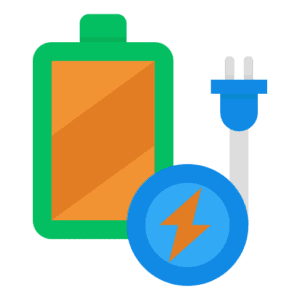 In BATTERY NEWS, South Korea’s LG Energy Solution generated a lot of excitement ahead of its flotation – the country’s biggest ever – as investors bet that it would benefit from ongoing US-China tensions. Nearer home, Britishvolt‘s Northumberland gigafactory got another ton of cash from investors as it signed a deal to produce its first batteries.
In BATTERY NEWS, South Korea’s LG Energy Solution generated a lot of excitement ahead of its flotation – the country’s biggest ever – as investors bet that it would benefit from ongoing US-China tensions. Nearer home, Britishvolt‘s Northumberland gigafactory got another ton of cash from investors as it signed a deal to produce its first batteries.
In CONSUMER AND RETAIL NEWS…
 In CONSUMER TRENDS, the cost of living is officially rising faster than wages are and we’re losing confidence about our finances. That said, we’ve been shopping in Covent Garden to the extent that retailers are now able to pay rent, richer customers are pushing luxury brands like Burberry and LVMH to new highs and buying flash cars. The travel industry is talking about a second-half boom, so the like of EasyJet, Saga and Wizz Air are staying positive – something that is much needed after official figures show that Heathrow passenger numbers hit their lowest level since 1972! Interestingly, London-based start-up Fly Now Pay Later raised £55m to expand into the US and could become quite popular as it will be to flying what Klarna is to shopping! Anyway, it look like we’re funding our spending on plastic as personal debt levels in America are rising while Amex reported rising card usage and the likes of Mastercard and Barclaycard are also likely to benefit. In more mundane trends, P&G said that prices of its goods will continue to rise…
In CONSUMER TRENDS, the cost of living is officially rising faster than wages are and we’re losing confidence about our finances. That said, we’ve been shopping in Covent Garden to the extent that retailers are now able to pay rent, richer customers are pushing luxury brands like Burberry and LVMH to new highs and buying flash cars. The travel industry is talking about a second-half boom, so the like of EasyJet, Saga and Wizz Air are staying positive – something that is much needed after official figures show that Heathrow passenger numbers hit their lowest level since 1972! Interestingly, London-based start-up Fly Now Pay Later raised £55m to expand into the US and could become quite popular as it will be to flying what Klarna is to shopping! Anyway, it look like we’re funding our spending on plastic as personal debt levels in America are rising while Amex reported rising card usage and the likes of Mastercard and Barclaycard are also likely to benefit. In more mundane trends, P&G said that prices of its goods will continue to rise…
 In RETAIL NEWS, Boots continues to attract new bidders, M&S announced a new teleshopping service that uses influencers on a livestream and Aldi unveiled a cashierless shop but ditched Deliveroo for grocery deliveries to concentrate on click-and-collect, an interesting change from the pandemic trend, which was all about delivery.
In RETAIL NEWS, Boots continues to attract new bidders, M&S announced a new teleshopping service that uses influencers on a livestream and Aldi unveiled a cashierless shop but ditched Deliveroo for grocery deliveries to concentrate on click-and-collect, an interesting change from the pandemic trend, which was all about delivery.
ELSEWHERE...
 In M&A AND IPO NEWS, Grand Theft Auto maker Take-Two decided to buy FarmVille maker Zynga in a $13bn punt on the future of mobile gaming and the National Express/Stagecoach deal hit problems as the CMA said that it would be investigating the proposed £1.9bn merger. I guess this was bound to happen given that they are two bus companies! January also saw private equity firm TPG have a successful IPO, making it the latest in a line of private equity firms coming to market to crystallise the value in their businesses. Being able to own tradeable shares in your employer is useful currency for making future hires and locking in existing talent.
In M&A AND IPO NEWS, Grand Theft Auto maker Take-Two decided to buy FarmVille maker Zynga in a $13bn punt on the future of mobile gaming and the National Express/Stagecoach deal hit problems as the CMA said that it would be investigating the proposed £1.9bn merger. I guess this was bound to happen given that they are two bus companies! January also saw private equity firm TPG have a successful IPO, making it the latest in a line of private equity firms coming to market to crystallise the value in their businesses. Being able to own tradeable shares in your employer is useful currency for making future hires and locking in existing talent.
In INDIVIDUAL COMPANY NEWS, Netflix saw its share price tank because of disappointing new subscriber numbers in Q4 while fellow lockdown winner, Peloton, saw its share price bomb as news emerged that it was cutting production because of a slowdown in demand. Calls increased for the chief exec to be axed.







